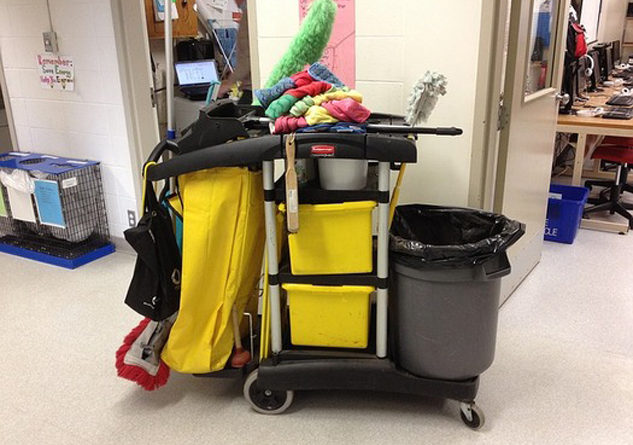Eric Tegethoff
Public News Service
SALEM, Ore. – Months before the #MeToo movement gained steam, Oregon lawmakers passed legislation to protect women working in the shadows, literally.
Now that law is in effect.
At the beginning of this year, janitorial contractors started joining a registry that ensures they’re in compliance with workplace harassment laws.
State Rep. Andrea Salinas says sexual harassment and even assault are pervasive in the janitorial industry and women in this industry often aren’t able to speak up because of non-disclosure agreements from settlements or threats from their managers.
Even so, Salinas says the testimonies women gave in support of this legislation last year were moving.
“This just shows you that an industry where the workers truly do work in the shadows – they work at night, they work alone, sometimes their families don’t know the locations of where they’re working, their job site – for a few of them to come forward was really powerful,” she states.
Salinas says there are some technical issues the Legislature will clear up this session. She says the law ended up capturing more contractors than lawmakers intended.
Many people who work in the janitorial industry are undocumented, making it harder for them to come forward and report harassment or assault, Salinas explains. Some receive threats of deportation if they speak up.
Salinas says a big component of this law is making sure undocumented workers know their rights and that they can go to law enforcement in these situations.
Still, Salinas says some contractors have complained that the law is too onerous on their businesses.
“We have gotten some pushback, but I think it’s really hard to argue against putting in place a system that will help to prevent women and workers from being raped at their worksites,” Salinas stresses.
Felisa Hagins, political director of Service Employees International Union (SEIU) Local 49, says it’s important for women to know where to go and what to do when inappropriate behavior starts, and that this law provides a process where you can report that behavior early and be heard.
SEIU Local 49 helped pass the law.
“My biggest hope is that when we get to the end of this, if one single sexual assault or harassment is prevented, then this bill has really done its work,” Hagins states.






